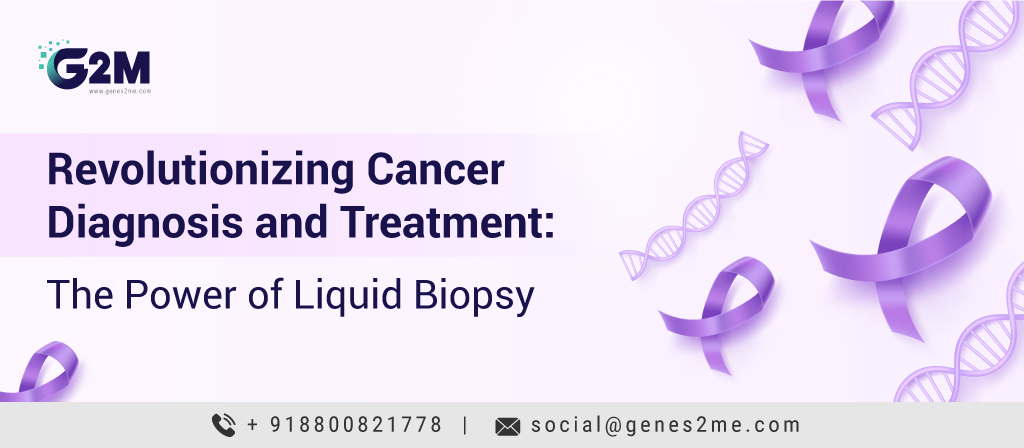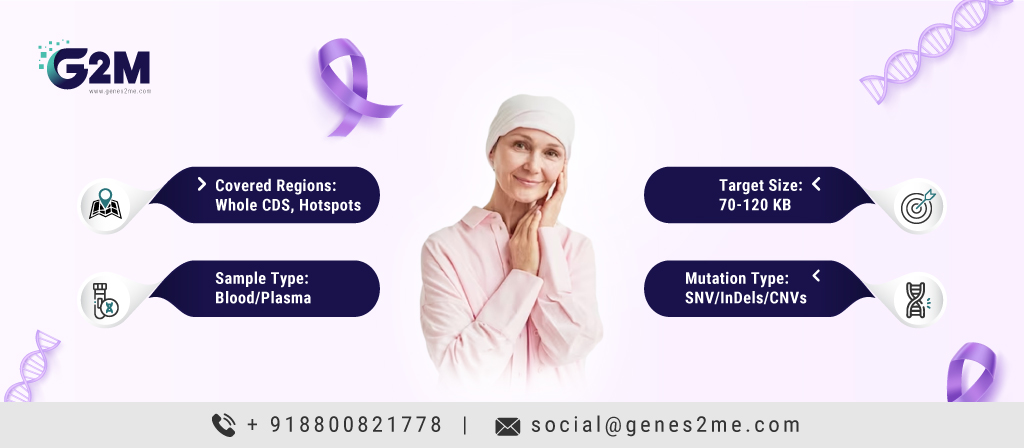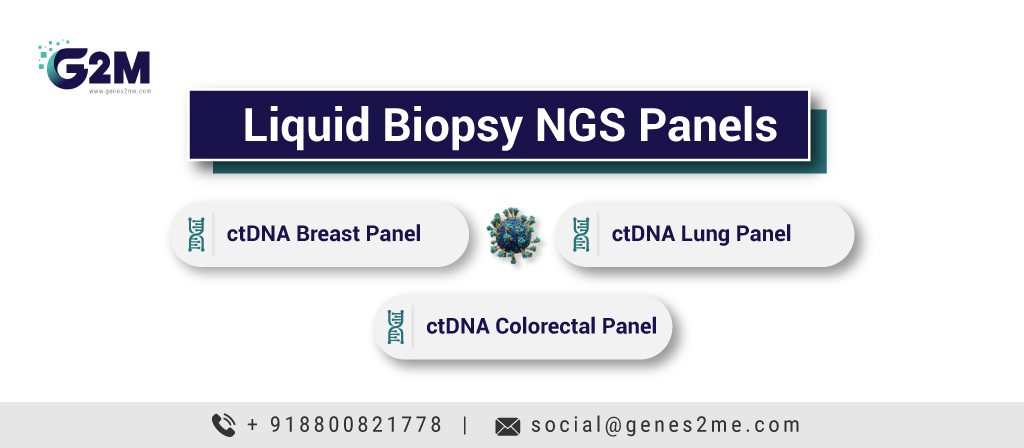Revolutionizing Cancer Diagnosis with G2M’s Liquid Biopsy NGS Clinical Panels

In the realm of cancer diagnosis and treatment, the advent of liquid biopsy has sparked a transformative shift. Liquid biopsy, a term encompassing the collection and analysis of non-solid biological tissues primarily from peripheral blood, offers a non-invasive yet highly effective means of detecting disease-associated biomarkers. This revolutionary technique utilizes circulating tumor DNA (ctDNA) or circulating tumor cells (CTCs) as sample materials, providing crucial insights into cancer detection, treatment selection, therapy response monitoring, and resistance mechanisms exploration.
Liquid biopsy’s appeal lies in its accessibility and reduced patient complications compared to traditional surgical biopsies. By analyzing bodily fluids such as blood, urine, saliva, pleural effusion, and cerebrospinal fluid, liquid biopsy offers a non-aggressive approach to detecting disease-associated biomarkers. Among these bodily fluids, blood emerges as the most commonly utilized medium due to its rich source of circulating extracellular nucleic acids and tumor-derived materials.
Through next-generation sequencing (NGS), liquid biopsy enables the detailed molecular analysis of ctDNA, cfDNA, and CTCs. This sophisticated technology facilitates the identification of specific mutations and biomarkers, guiding treatment decisions and predicting therapeutic responses.
The FDA’s approval of diagnostic tests underscores the growing recognition of liquid biopsy’s clinical utility, offering valuable prognostic information and personalized treatment recommendations.
Liquid biopsy’s versatility extends across various clinical applications, including disease screening, patient stratification, therapy selection, treatment response monitoring, and detection of minimal residual disease. By harnessing the power of CTC and cfDNA detection technologies, liquid biopsy empowers clinicians to tailor treatment strategies at different stages of cancer diagnosis and management.
Key Features

Benefits of ctDNA Liquid biopsy
- Early Detection: Liquid biopsies allow for the detection of circulating tumor DNA (ctDNA) and circulating tumor cells (CTCs) at early stages of cancer development, enabling early diagnosis and intervention.
- Monitoring Treatment Response: Liquid biopsies enable real-time monitoring of treatment response by detecting changes in tumor-derived biomarkers over time, guiding treatment adjustments, and optimizing patient care.
- Identification of Minimal Residual Disease: Liquid biopsies can detect minimal residual disease (MRD) after surgery or treatment, providing insights into disease recurrence risk and informing post-treatment surveillance strategies.
- Assessment of Tumor Heterogeneity: Liquid biopsy captures the genetic heterogeneity of tumors more comprehensively than traditional tissue biopsies, allowing for a more accurate assessment of tumor evolution and adaptation to treatment.
- Non-invasive and Repeatable: Liquid biopsies offer a non-invasive and easily repeatable method for obtaining tumor-derived biomarkers, minimizing patient discomfort, and facilitating longitudinal monitoring of disease progression and response to therapy.
- Potential for Personalized Medicine: Liquid biopsy-based molecular profiling enables the identification of specific genetic alterations and biomarkers, enabling personalized treatment approaches tailored to the individual patient’s tumor biology.
- Prognostic Value: Liquid biopsy-derived biomarkers have prognostic value in predicting patient outcomes, such as overall survival, disease-free survival, and response to therapy, aiding in clinical decision-making and patient management.
Genes2me introduces a groundbreaking approach with its Liquid Biopsy NGS Panels, revolutionizing the detection and management of various cancers, including colorectal, lung, and breast cancer.

Genes2Me ctDNA Colorectal Panel
The Genes2Me ctDNA Colorectal Panel utilizes a hybridization-based solution for targeted sequencing employing Next-Generation Sequencing (NGS) technology. This innovative approach offers a fast turnaround time while providing detection and identification of 25 clinically relevant genes spanning 74 Kb of the genome. Covering the whole coding sequence, this panel encompasses all major mutations such as Single Nucleotide Variants (SNVs) and Insertions/Deletions (InDels) associated with colorectal cancer.
Genes2Me ctDNA Lung NGS Panel:
For diseases associated with genetic mutations in the lung, the Genes2Me ctDNA Lung NGS Panel offers a comprehensive screening solution. Covering 32 clinically relevant genes with a hybridization-based target capture technique, this panel targets coding regions of the genome, detecting SNVs and InDels. With a target size of 110 Kb, it provides a thorough analysis to aid in early detection and personalized treatment strategies.
Genes2Me ctDNA Breast Panel:
In the realm of breast cancer detection, the Genes2Me ctDNA Breast Panel stands out as a robust solution. Utilizing hybridization-based targeted sequencing with NGS technology, this panel detects and identifies 29 clinically relevant genes spanning 115 Kb of the genome. With coverage of the whole coding sequence, it addresses major mutations like SNVs and InDels, offering a comprehensive approach to breast cancer screening and management.
Key Features of Genes2me Liquid Biopsy NGS Panels:
- Focused Comprehensive Panel: Targets specific genes, capturing ultra-low Variant Allele Frequency (VAF) mutations with enhanced sensitivity and accuracy.
- Low Input Compatibility: Process compatible with low-quality input samples, ensuring reliability even in compromised sample conditions.
- Robust and Rapid Turnaround: Utilizes hybridization enhancer technology and enzyme-based library preparation, enabling quick turnaround time for timely clinical decision-making.
- CliSeq Interpreter Software: User-friendly companion software for automated and cloud-based analysis and reporting, streamlining data interpretation and facilitating clinical insights.
